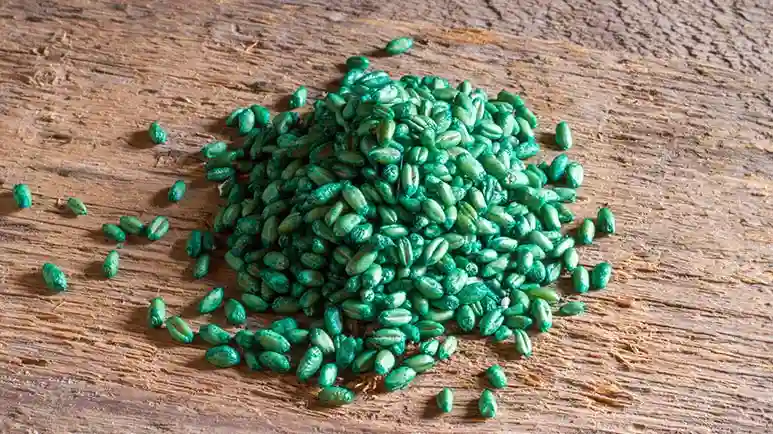Fast Acting with No Antidote — Is Bromethalin Sitting Around Your Home?
In a quest for safer alternatives, this 'bomb' was developed. Unfortunately, it's been anything but a safer option. Instead of five days to save a pet's life, these symptoms appear quickly, in two to 24 hours. And that's not even the worst of it. Fortunately, there is a safer option.

STORY AT-A-GLANCE
- A supposedly safer rodent bait for home use is having unintended — and sometimes deadly — consequences. This generation of rodenticides contains the poison bromethalin
- Many rodent bait manufacturers are now using bromethalin as a replacement for long-acting anticoagulant poisons. The goal was to make these products safer around kids, pets and wildlife, but it seems the opposite has happened — at least for pets
- Bromethalin is much faster-acting than older poisons, so pet owners and veterinarians must respond very quickly in the event of accidental ingestion by a dog or cat
- Also unlike the poisons it replaced, bromethalin has no antidote, so immediate, effective veterinary care is crucial to your pet’s survival
- Pet owners should consider live traps in lieu of rodenticides, and you should always supervise your pet outdoors to prevent ingestion of rodents and rodent bait
Editor's Note: This article is a reprint. It was originally published January 7, 2015.
Since 2011, the national Pet Poison Helpline has reported a 65% increase in bromethalin poisoning in pets.
Bromethalin is a poison many manufacturers of rodenticides are now using as a replacement for long-acting anticoagulants in residential-use rat poison products. Manufacturers switched to bromethalin in response to a 2008 EPA directive intended to make rodenticides safer for kids, pets and wildlife.
Unfortunately, although the bromethalin-containing products are meant to be safer, they have an unintended consequence. Bromethalin is faster acting than older rodenticides, and unlike long-acting anticoagulants, it has no antidote.
To make matters worse, the appearance and packaging of the rodenticides is similar to older rat poisons, so often pet owners and veterinarians don’t even know what type of poison they’re dealing with.
Many veterinarians have already been challenged with treating bromethalin-poisoned pets, primarily dogs, and feel the problem will only get worse, increasing the number of animals that become terribly sick or die from accidental poisoning.
‘Safer’ Rodenticide Is Anything But
Bromethalin is a fast-acting neurotoxin that affects the brain and liver. In pets, signs of brain swelling and central nervous system disturbance appear within two to 24 hours of ingestion. Symptoms depend on how much of the poison was swallowed, and include unsteadiness, weakness, muscle tremors, paddling motions of the limbs, hyper-excitability, depression, vomiting, high fever, stiffness in the front legs, and seizures.
With long-acting anticoagulant poisoning, veterinarians had around five days to save the animal’s life. But the symptoms of bromethalin poisoning appear within two to 24 hours of ingestion. Once a pet is showing neurological signs, he or she may only have a day or two to be saved, and successful treatment is both difficult and expensive.
No Antidote
Because there’s no antidote for bromethalin intoxication, treatment generally consists of supportive care, including inducing vomiting and administering activated charcoal.
The severity of the poisoning depends on how much bromethalin is ingested. If vomiting can’t be induced within 10 to 15 minutes of ingestion, it should ONLY be attempted in a veterinary setting. The pet will also need to be monitored for acute signs of neurological impairment and given repeated doses of activated charcoal for the next 24 hours.
If symptoms occur, the patient will receive treatment to reduce swelling in the brain, including IV fluids. An animal who experiences seizures or paralysis after ingesting bromethalin has a poor prognosis for recovery.
Immediate veterinary care is necessary if you suspect your pet has ingested rat poison. Bring along the poison container with the label so your veterinarian knows what he or she is dealing with. The sooner your pet is treated, the better the chances for a full recovery.
Preventing Bromethalin Poisoining
If you have rodents around your home, try using a live trap called the Havahart®, which is a humane trap that catches mice, rats or other rodents so you can remove them from your home without using toxins or poisoning your environment.
If you must use a bait trap with a killing agent, select a product that contains an active ingredient other than bromethalin. Diaphacinone and chlorophacinone are short-acting anticoagulants, and most veterinarians will be familiar with standard methods of diagnosis and treatment. But again, it’s best to avoid using these products as much as possible.
Supervise your pets when they’re outside to ensure they never have a chance to consume rodents or rodent bait around your home or neighborhood.











